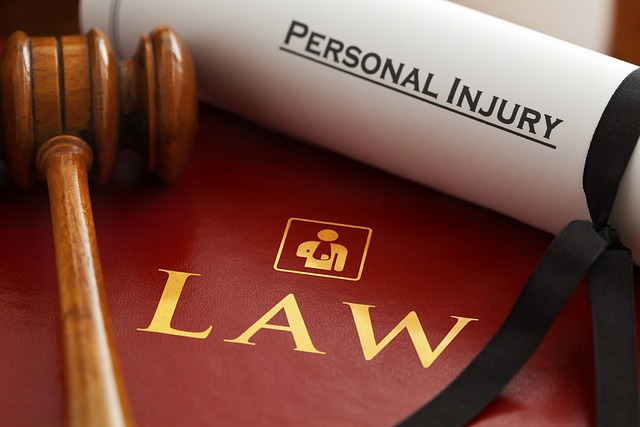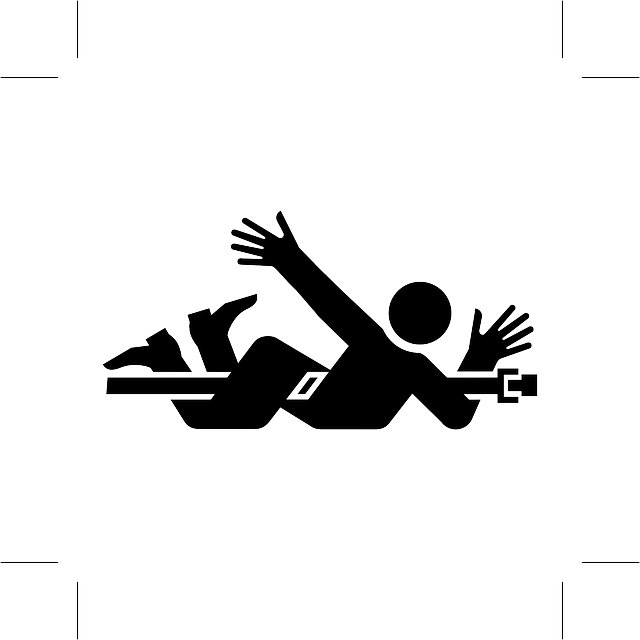Personal injury law governs claims where individuals suffer harm due to someone else's negligence or intentional actions. It covers compensation for medical expenses, income loss, and intangible damages like pain and suffering. Understanding liability principles, statutes of limitations, and the types of damages is crucial when navigating this area of law. Proving negligence involves showing that the responsible party breached their duty of care and caused the injury, with comparative negligence also affecting compensation if the victim shares fault. Legal guidance is essential to protect victims' rights and ensure fair representation. In 2023, landmark rulings have reshaped personal injury law, particularly in product liability cases and comparative fault statutes, necessitating legal professionals to stay current with these evolving trends for effective client advocacy and equitable outcomes.
Navigating the complexities of personal injury law can be a daunting task for those facing its necessities. This article serves as a comprehensive guide, demystifying the legal framework and offering actionable steps post-incident. From understanding your rights to recognizing the pivotal role of evidence and expert testimony in claim recovery, we explore the nuances of personal injury law. Additionally, we delve into recent developments and landmark cases that have shaped this field, ensuring you are well-informed and prepared should you need to invoke its protections.
- Understanding Personal Injury Law: An Overview for Affected Individuals
- Navigating the Legal Process: Steps to Take After a Personal Injury Incident
- Recovering Compensation: The Role of Evidence and Expert Witnesses in Personal Injury Claims
- Staying Informed: Recent Developments and Key Cases in Personal Injury Law
Understanding Personal Injury Law: An Overview for Affected Individuals

When navigating the complexities of personal injury law, it is crucial for individuals affected by such incidents to grasp the fundamental principles that govern this legal field. Personal injury law is a branch of tort law that provides a framework for individuals who have sustained physical or emotional harm due to the negligence or wrongful actions of another party. This area of law serves to compensate victims for their losses, including medical expenses, lost wages, and pain and suffering. Understanding the nuances of liability, the statute of limitations, and the types of damages recoverable is essential for anyone who finds themselves in this situation.
For instance, proving negligence on the part of the defendant is a cornerstone in personal injury cases. This involves demonstrating that the defendant owed a duty of care to the plaintiff, breached that duty through a failure to act or an action that fell below the standard of care, and directly caused the injury as a result of this breach. Additionally, the concept of comparative negligence may be applied, which can affect the amount of compensation an injured party may receive if they are found partially at fault for the incident. It is advisable for individuals to seek legal counsel to navigate these complexities and to ensure their rights are protected throughout the legal process. Understanding personal injury law empowers those affected by injuries to pursue justice and fair compensation, fostering a more informed approach to dealing with the aftermath of such events.
Navigating the Legal Process: Steps to Take After a Personal Injury Incident

When encountering a personal injury incident, understanding the legal process is crucial for securing fair compensation and navigating the complexities of personal injury law. The immediate aftermath of such an event often involves physical recovery, but concurrently, initiating a legal claim can be pivotal to your case. Firstly, it’s important to document the incident thoroughly. This includes taking photographs of the accident scene, any visible injuries, and maintaining records of all medical treatments and associated costs. Secondly, seek medical attention promptly; not only does this ensure your well-being, but it also establishes a clear record of the injuries sustained.
Subsequently, contacting an experienced personal injury attorney is advisable to guide you through the legal framework. An attorney can help evaluate the strength of your case, advise on statutes of limitations, and handle communications with insurance companies. They will assist in gathering evidence, such as medical reports and witness statements, and negotiate with parties involved to reach a fair settlement. Throughout this process, adherence to personal injury law is paramount, ensuring that your rights are protected and that you receive the compensation you are entitled to for your losses and suffering. Engaging with legal professionals early on can significantly enhance your position and outcomes in a personal injury claim.
Recovering Compensation: The Role of Evidence and Expert Witnesses in Personal Injury Claims

Navigating personal injury law involves a complex interplay between the evidence at hand and the expertise of witnesses who can substantiate the claim. Evidence forms the backbone of any personal injury case, serving as the concrete proof necessary to establish fault and causation. This can include medical records, accident reports, photographs of the incident site or injuries sustained, and any other documentation that supports the plaintiff’s version of events. The quality and quantity of this evidence are critical in demonstrating to the court or insurance companies that the injury was indeed the result of another party’s negligence or wrongdoing.
In addition to tangible evidence, expert witnesses play a pivotal role in personal injury claims. These individuals—such as medical professionals, accident reconstruction experts, and vocational evaluators—provide authoritative insights that can sway the outcome of a case. Their testimony is particularly influential when it comes to explaining the extent of an individual’s injuries or the long-term impact of those injuries on their life, employment, and overall well-being. By lending credibility to the evidence presented, expert witnesses help plaintiffs recover the compensation they deserve under personal injury law. Their analysis and opinions can illuminate aspects of the case that might not be immediately apparent to judges or jurors, thereby solidifying the claimant’s position and facilitating a fair settlement or verdict.
Staying Informed: Recent Developments and Key Cases in Personal Injury Law

Navigating the ever-evolving landscape of personal injury law requires staying abreast of recent developments and landmark cases that shape its trajectory. In the past year alone, there have been several pivotal rulings that have significantly impacted the rights of individuals who have suffered harm due to another party’s negligence or wrongdoing. For instance, a recent appellate court decision expanded the scope of liability in product liability cases, potentially opening new avenues for claims against manufacturers. Additionally, high-profile cases have shed light on the application of comparative fault statutes, further complicating the responsibility matrix between plaintiffs and defendants. Legal professionals must closely monitor such trends to accurately advise clients on their options under personal injury law. This diligence is essential for practitioners aiming to navigate the complexities of this dynamic legal field, ensuring they can offer informed counsel to those seeking justice following an injury. Keeping up with the latest legal precedents and statutory amendments not only enhances the efficacy of advocacy but also underscores the importance of a proactive approach in personal injury litigation.
navigating personal injury law can be a complex journey, but with the right guidance and understanding of the legal landscape, affected individuals can secure the compensation they deserve. This article has outlined the critical steps to follow post-incident, underscored the significance of robust evidence and expert testimony in claims, and kept readers apprised of recent developments and key cases shaping this area of law. As you move forward on your path toward recovery and justice, remember that knowledge is power in personal injury law, and staying informed is crucial to navigating the legal system effectively.
